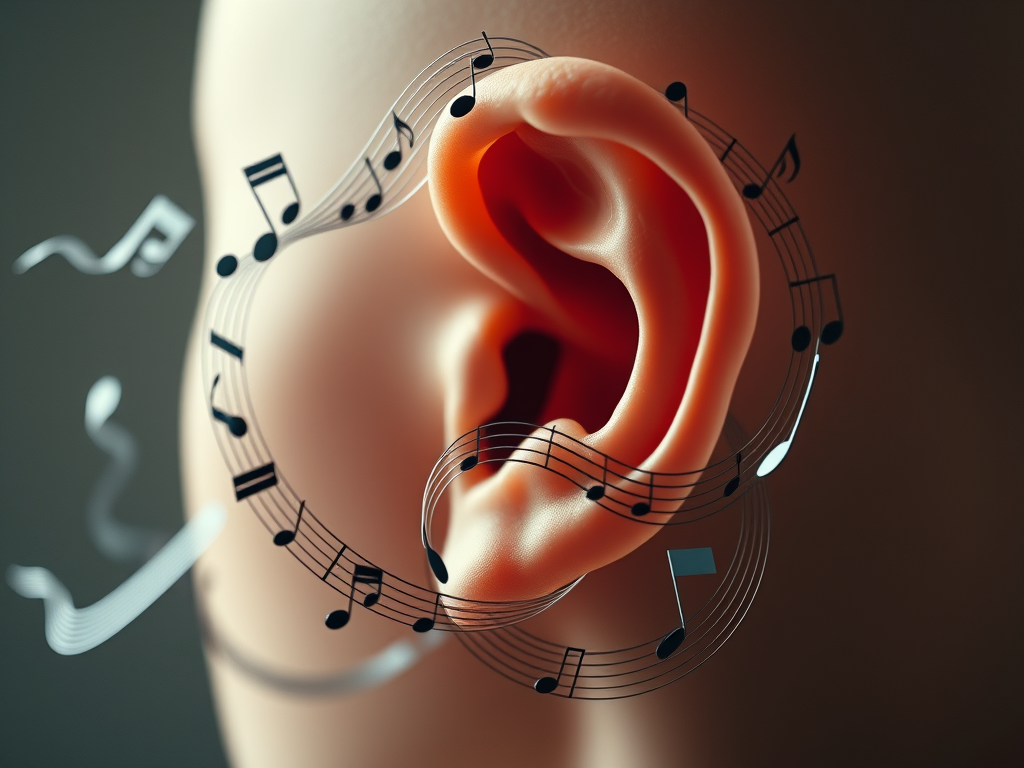
What Every Musician Should Know About Their Most Precious Tool
As a musician, your ears are arguably your most valuable asset. They guide you through the intricate nuances of melody, harmony, and rhythm, allowing you to perfect your art. But how much do you really know about the complex anatomy and fascinating quirks of your ears? Beyond providing a portal to the world of sound, your ears have some surprising qualities worth exploring, especially if you want to protect and preserve them for a lifetime of music.
1. The Human Ear Canal: Your Gateway to Sound
The human ear is much more than the visible part we adorn with earrings or cover with headphones. One of the most critical parts for musicians is the ear canal. This narrow passageway is responsible for funneling sound waves to the eardrum, where they are converted into vibrations and, eventually, interpreted by the brain as sound.
The ear canal’s size, shape, and even the amount of earwax (also called cerumen) can significantly impact the way you hear sound. While earwax may seem like an annoyance, it’s actually essential for protecting your ears from bacteria, dust, and other foreign particles.
However, too much earwax can block sound and cause a slight dip in hearing, something that can affect your ability to pick up high frequencies—crucial for musicians. Regular, gentle cleaning is key, but avoid using cotton swabs, which can push the wax further into the canal, making things worse. Professional ear cleanings can help ensure your ear canals stay clear, especially after long rehearsals or gigs.
2. Do Ears Really Get Bigger As We Age?
It’s a common myth that our ears continue growing throughout our lives, but like many myths, this one has a grain of truth. According to a HuffPost article on the subject, while the ear itself doesn’t keep growing, gravity causes certain parts—especially the earlobes—to elongate as we age. This can make it look like your ears are getting bigger, especially for older musicians.
Though this might not directly affect your hearing, it’s an interesting quirk. Musicians who spend long hours wearing in-ear monitors or headphones may notice changes in how their ears feel over time, so comfort becomes an essential factor as you age.
3. Ears and Aging: How Hearing Changes Over Time
Aging doesn’t just stretch your earlobes; it also impacts your hearing. One common phenomenon is presbycusis, which refers to age-related hearing loss. This usually affects the ability to hear higher frequencies, which can be particularly challenging for musicians, as these frequencies are essential for discerning tonal qualities in music.
4. Noise-Induced Hearing Loss: A Major Concern for Musicians
Another concern for musicians is noise-induced hearing loss (NIHL), which can result from exposure to loud environments—think concerts, band rehearsals, and studio sessions. Repeated exposure to sounds over 85 decibels (which isn’t hard to reach with amplified instruments or live performances) can lead to permanent damage.
Wearing custom earplugs or in-ear monitors with noise reduction features can be a game-changer. Unlike regular foam earplugs, musician-grade earplugs are designed to filter out harmful frequencies while allowing the important musical frequencies to pass through. Many professional musicians swear by these, as they can help protect your ears without compromising sound quality.
5. The Amazing Flexibility of Your Ears
Did you know your ears can actually “learn” to hear better over time? This is called auditory plasticity, and it refers to the brain’s ability to adapt and fine-tune its interpretation of sound. Musicians, in particular, benefit from this, as their brains become increasingly attuned to pitch, timbre, and rhythm. However, this works best when your ears are in good health, so taking care of them is essential!
6. Quick Tips for Keeping Your Ears in Tune
Here are some practical steps musicians can take to protect and enhance their hearing health:
- Limit loud exposure: Use ear protection during rehearsals, concerts, and while using loud equipment.
- Take breaks: Give your ears a rest by stepping away from loud environments when possible.
- Get regular check-ups: Periodic hearing tests can catch any early signs of hearing loss.
- Watch the volume: Turn down the volume on your headphones or monitors whenever you can.
- Stay hydrated: Proper hydration helps keep your ear canals in optimal condition, preventing excessive dryness or wax buildup.
- Stay mindful of your posture: Poor posture can impede blood flow to your ears, potentially impacting hearing over time.
Tune In To Your Hearing Health
As a musician, your ears are your ultimate instrument, and caring for them is just as important as tuning your guitar or warming up your voice. Knowing the basics of ear health, understanding how your hearing evolves with time, and taking preventive measures can ensure that you continue to enjoy the beauty of sound throughout your life and career. So, next time you put on those headphones or step into a loud rehearsal, remember: your ears are the unsung heroes behind every note you play. Treat them well!
